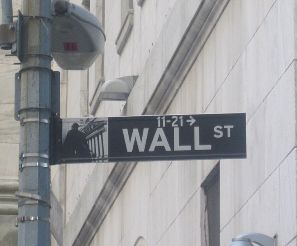Occupy Wall Street Wall Street Fashion Wall Street Financial Industry Fashion Industry
![]()
|
|
The
following Occupy Wall
Street definition is
licensed under the
GNU Free Documentation
License.
The following definition of
Occupy Wall
Street was retrieved from
Wikipedia on October 25,
2011 from the website page
of
http://en.wikipedia.org/wiki/Occupy_Wall_Street
(Occupy
Wall Street). We may update this definition from time to time at our discretion. Possibly, making text updates and possibly updating links, etc. We suggest that you utilize the version at Wikipedia if you wish to view a non altered version. Regarding the references listed (footnotes), they are numbered and are listed at the end of the section (not at the bottom of each page). Please visit the Occupy Wall Street at Wikipedia for the most complete version including more recent updates. Occupy Wall Street Pg. 1, 2, 3, 4, 5, 6, 7, 8, 9, 10, 11, 12 |
Conservative criticism
Mark Tooley of the Institute on Religion and Democracy, stated that "while Occupy Wall Street has succeed in getting attention, it's limited because it's only attracting religious support from the left." He stated that a call for the government redistribution of wealth and reliance on street activism did not appeal to those with conservative political or religious leanings. Conservative radio talk show hosts have commented on the movement. Rush Limbaugh told his listening audience on his October 5 show that: "When I was 10 years old I was more self-sufficient than this parade of human debris calling itself Occupy Wall Street." Glenn Beck said, "Capitalists, if you think that you can play footsies with these people, you are wrong. They will come for you and drag you into the streets and kill you. They will do it. They’re not messing around".
In October 2011, Mike Brownfield of The Heritage Foundation, a conservative think tank, argued that rejection of the capitalist system and the policies that OWS protesters advocate, including limits on trade and student loan forgiveness, would not lead to improved economic conditions for unemployed Americans. According to Brownfield, the Foundation believes it is "right to decry out-of-control bailouts and corporate subsidies" and there are valid concerns regarding the economy, unemployment rates and low job creation. However, Heritage argued that capitalism is key to improving the economy and that the movement is focusing on the wrong solutions to the problems they protest: it should be protesting the expansion of government instead of calling for more government intervention.
A group of politically conservative bloggers, led by political commentator Erick Erickson, organized a website entitled "We Are the 53%"—referring to the 53% of Americans who pay federal income taxes—criticizing the movement, modeled on the "We Are the 99%" website.
Local residents
Local residents of the area surrounding Zucotti Park have voiced various complaints about the demonstrations. A caller to a radio show complained that the park has been rendered "unusable" by the protestors, and that "a general atmosphere of incivility", together with loud shouting and drums, prevailed; another complained that the drums from the protest, which he said "start in the morning" and get louder in the evening until 11:30 pm, made it difficult for his children to sleep or do their homework. Another resident complained that protestors had been vandalizing and urinating in the vestibule to his apartment building. Responding to a caller complaining about noise and incivility at the park, Mayor Michael Bloomberg said "we couldn't agree more".
International reaction
- Brazil - President Dilma Rousseff said, "We agree with some of the expressions that some movements have used around the world [in] demonstrations like the ones we see in the US and other countries."
- Canada - Prime Minister Stephen Harper said that because there was nothing like a Canadian TARP program, he did not think Canadians were as angry as Americans. Finance Minister Jim Flaherty expressed sympathy with the protests, citing high unemployment amongst the youth.
- China - The Chinese state news agency Xinhua said the protests had exposed "fundamental problems" with the US economic and political systems, and that it showed "a clear need for Washington, which habitually rushes to demand other governments to change when there are popular protests in their countries, to put its own house in order."
- Greece - Prime Minister George Papandreou supported the U.S. protests saying, "We fight for changing the global economic system, like many anti-Wall Street citizens who rightly protest against the inequalities and injustices of the system."
- India - Prime Minister Manmohan Singh stated, "There are reasons why people are protesting. People are protesting in Wall Street, in Europe about the fat salaries that the bankers are getting when people are being asked to tighten their belts. There is problem of growing unemployment in the United States. There is also worry in Europe. So there are problems which the system must have credible answers to take them on board."
- Iran - Supreme Leader Ali Khamenei commented that the protests are because a "corrupt foundation has been exposed to the American people."
- North Korea - The Korean Central News Agency of DPRK commented that the Occupy Wall Street movement were "in protest against exploitation and oppression by capital, shaking all fabrics of society."
- Poland - Lech Wałęsa, former president of Poland and cofounder of the Polish Solidarity Movement has expressed his support for Occupy Wall Street and is considering a visit to the site.
- Russia - Former Soviet Union President Mikhail Gorbachev compared it to the perestroika period and the collapse of a superpower, calling the protests justified. He said Americans should put their own house in order before attempting to do such with other countries.
- United Kingdom - Former Prime Minister Gordon Brown said the protests were about fairness. "There are voices in the middle who say, ‘Look, we can build a better financial system that is more sustainable, that is based on a better and proportionate sense of what’s just and fair and where people don’t take reckless risks or, if they do, they’re penalized for doing so.’"
- Venezuela - Venezuelan President Hugo Chávez condemned the "horrible repression" of the Occupy Wall Street activists and expressed solidarity with the movement.
Media coverage
The protests began on Saturday, September 17. The following Wednesday, The New York Observer reported on the nascent protests in Zuccotti Park. On Friday, September 23, Ginia Bellafante panned the movement in The New York Times. Five days into the protest, Keith Olbermann criticized the media for failing to cover the protests. Joanna Weiss of The Boston Globe found it difficult to take the protests seriously, criticizing Occupy Wall Street for its "circus" atmosphere." In a September 27 article, Lauren Ellis of Mother Jones magazine criticized the movement's lack of a clear message.
Media theorist Douglas Rushkoff criticized the mainstream media for dismissing the protesters. "Anyone who says he has no idea what these folks are protesting is not being truthful. Whether we agree with them or not, we all know what they are upset about, and we all know that there are investment bankers working on Wall Street getting richer while things for most of the rest of us are getting tougher." Rushkoff says that Occupy Wall Street is the first true Internet-era movement, and as such, it does not have a charismatic leader or particular endpoint. Unlike a traditional protest which identifies the enemy and fights for a particular solution, Rushkoff concludes that the protest is less about victory than sustainability, inclusion and consensus.
By October 4, economist Richard Wolff commented that the unclear shape of the movement is "mostly irrelevant" at this early stage and the priority should be to invite all interested parties. Kalle Lasn, co-founder of Adbusters, believed that the protests had gone mainstream and expressed the opinion that "it's become kind of a political left movement in the U.S., hopefully to rival the Tea Party". Michael Daly, of Newsweek and The Daily Beast characterized the position of the protestors as a "feeling that there is just a fundamental unfairness. From their point of view, the very people who almost wrecked the U.S. economy on Wall Street continue to get wealthy while working people are struggling to pay their bills." On October 11, Katrina vanden Heuvel, who writes a weekly column for The Post and is the editor and publisher of The Nation, said "most understand that the main task ahead is growing the movement", and pointing to recent legislation, she suggests that the movement has already influenced public dialogue.
MSNBC's Technolog noted that policymakers had failed to address economic problems, and news media had failed to cover the unemployment crisis: "Tracking CNN, MSNBC and Fox, ThinkProgress found 7,583 mentions of the word 'debt,' compared to 427 mentions of 'unemployment' on all three networks combined." NM Incite said 22% of tweets using the #OccupyWallStreet hashtag voiced general support for the movement, 11% indicated participation in it, 5% described celebrity support, 11% were complaints against the movement, 13% shared news, 6% shared videos, 4% blamed government, 2% blamed President Obama, and 1% blamed capitalism. Douglas Rushkoff calls Occupy Wall Street, "America's first true Internet-era movement."
When we use the term Wall Street on our
website it is not always simply in reference to the street in
New York. It is a more general term to include the entire
financial industry. |
|
Top Wall Street Websites The Wall Street Journal NYSE Euronext Reuters - Finance NY Daily News - Wall Street |
About Us
Contact Us
copyright © 2013 to present day. Wall Street Fashion
